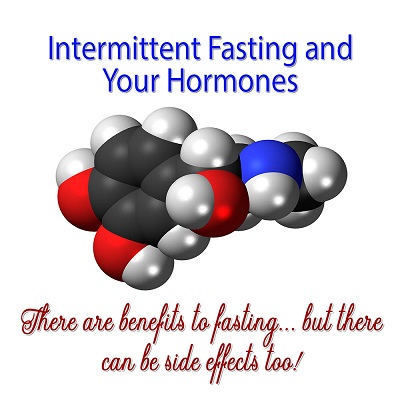 One of the most obvious effects – and aims – of intermittent fasting is weight loss, however, one question that many people may want to know is how this diet affects the body’s hormones.
One of the most obvious effects – and aims – of intermittent fasting is weight loss, however, one question that many people may want to know is how this diet affects the body’s hormones.
This is an important question because it determines whether or not this type of diet is suitable for you to follow, particularly for women, as they can be more affected by fasting than men. Your body needs to be in balance, including your hormones, to achieve optimum health and wellness.
Here are some of the hormones that are directly affected by intermittent fasting:
Your Hunger Hormones, Metabolism, and Blood Sugar Hormones
These hormones are called, leptin, insulin, and ghrelin, and these are the hormones most commonly affected when intermittent fasting. They help your body become a fat-burning machine.
During fasting, your body becomes more insulin sensitive, which helps lower your blood sugar levels, and as an added bonus, helps reduce your risk of type 2 diabetes.
It also helps overcome leptin resistance, which can lead to weight gain or weight loss resistance by not properly inhibiting hunger, which is its role.
Intermittent fasting also has positive effects on ghrelin, another hunger hormone that is responsible for regulating energy homeostasis.
Human Growth Hormone
If you eat several meals a day, including snacks in between meals, your body does not have the opportunity to increase amounts of the human growth hormone (HGH). This hormone is essential for burning fat, repairing your muscles and preserving bone density. Intermittent fasting helps increase your HGH by more than 200% in just five days of fasting.
Women’s Hormones
Intermittent fasting can lead to hormonal imbalances and negatively affect a woman’s reproductive system. It can interfere with ovulation, preventing pregnancy. It can also lead to an increase in hunger hormones that can trigger binge eating.
Therefore, there are additional recommendations for women who are prone to developing a hormonal imbalance. These include only fasting for non-consecutive days and making sure that only light exercise is performed when fasting.
Thyroid Hormones – Thyroxine (T4) and Triiodothyronine (T3)
These hormones get blamed for many weight problems. The thyroid plays a major role in your metabolism, body development and growth, and many other body functions. The thyroid hormone T4 is converted into T3 which is then utilized by the body. The thyroid hormone is responsible for storing and using energy.
The T3 hormone helps your body use fat for energy. As the body wants to preserve as much energy as it can during periods of fasting (no-food periods) the T3 levels can drop.
Intermittent fasting can affect several thyroid functions, so it is best to work with your medical practitioner to ensure that intermittent fasting is of benefit to you, and will not cause you problems.
Cortisol and Melatonin
The stress hormone cortisol helps give you the energy and mental awareness you need throughout the day, while the sleep hormone, melatonin, helps you get proper sleep. When there’s an imbalance in these two hormones, it can result in weight gain, poor sleep, anxiety, and chronic fatigue. Intermittent fasting can help your body achieve a healthy balance of cortisol and melatonin.
Noradrenaline
Noradrenaline is another stress hormone that is essential in enabling the body to perform better in stressful situations. During fasting, noradrenaline levels are increased to give the body energy. Metabolic rate and resting energy expenditure are also increased while fasting. As a result, the body goes into fat-burning mode.
It is fascinating how intermittent fasting results in several hormonal adaptations to bring improved health benefits. Understanding how it can affect your hormones is important because intermittent fasting is only effective if it doesn’t cause other problems. If done correctly, fasting can improve the body’s processes.






